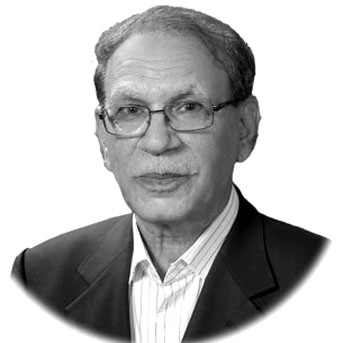Mohammad Jamil
THE International Court of Justice (ICJ) on Wednesday rejected India’s request to acquit, release and return of its national Kulbhushan Jadhav, who was sentenced by Pakistan on charges of espionage; however, ICJ asked Pakistan to provide him consular access. The only relief India got was court’s order to provide consular access to Kulbhushan Jhadav. The court ruled on Pakistan’s claim that the Vienna Convention does not apply in cases of individuals involved in espionage activity. In its interpretation, court stated:“Article 36 of the Convention does not exclude from its scope certain categories of persons, such as those suspected of espionage.” In fact, the entire verdict including review and reconsideration of the conviction of Kulbhushan Jadhav was on the basis that Jadhav was not provided Consular access. According to ad-hoc judge Tassaduq Hussain Jilani, authors of Convention would never have imagined of giving consular access to a spy.
In response to India’s plea to release Jadhav and to facilitate his safe passage to India, ICJ said: “It is not the conviction and sentence of Mr Jadhav, which are to be regarded as a violation of Article 36 of the Vienna Convention”. In the absence of clarity and interpretation of Article 36, Pakistan had thought that it was not obliged to provide consular access to the persons involved in espionage. The court did not uphold the submissions by India that “the partial or total annulment of conviction or sentence provided the necessary and sole remedy”. The judgment however, read: “The review and reconsideration of the conviction and sentence of Jadhav must be effective”. Anyhow, the ICJ further noted that according to Pakistan, the superior courts of Pakistan can exercise review jurisdiction. It means that the review and reconsideration would be carried according to Pakistani laws.
The court observed that Article 199, paragraph 3, of the Constitution of Pakistan has been interpreted by the Supreme Court as limiting the availability of such review for a person who is subject to any law relating to the Armed Forces of Pakistan, including the Pakistan Army Act of 1952. The ICJ cited a judgment of Peshawar High Court, in which it annulled the death sentences to suspected militants handed down by a military court in 2018, which is reflective of the trust in Pakistan’s courts. The ICJ referred to the Peshawar High Court’s last year verdict, wherein it was held that the high court had the legal mandate positively to interfere with decisions of military courts provided the prosecution was based, firstly, on no evidence, secondly, insufficient evidence, thirdly, absence of jurisdiction, finally malice of facts & law. But none of the conditions existed in this case.
The court did not accept India’s contention that Jadhav was entitled to ‘restitutio in integrum’ (restoration to original position) and turned down its request to annul the decision of Pakistan’s military court. Instead, it ruled that Pakistan by the means of its own choosing could undergo an effective review and reconsideration of the sentence awarded to Jadhav. The court accepted Pakistan’s point that Jadhav was an Indian national possessing a valid Indian passport in the name of Hussein Mubarak Patel and said it was satisfied that the evidence before it left no room for doubt that Jadhav held Indian nationality. However, Indian media continues to claim ICJ’s verdict as victory for India, firstly, the ICJ rejected Pakistan’s objections to the admissibility of the application of India with a 15-1 votes. Secondly, the ICJ ruled that Pakistan will have to review the entire process of trial and conviction of Kulbhushan Jadhav.
India is happy over court’s verdict about providing consular access to the spy and terrorist Kulbhushan Jhadav, as it could force Kulbushan Jadhav to change his statement wherein he had admitted that he was RAW agent, and was assigned with the task of destabilizing Pakistan through subversive acts. There is incontrovertible evidence and witnesses as well as Kulbhushan’s statement that he had started intelligence operations in 2003; and as a cover he had established a small business in Chabahar in Iran. He completed some basic assignments within India for RAW and visited Karachi in 2003 and 2004. Since 2013 he has been directing various activities in Balochistan and Karachi at the behest of RAW. He revealed that he was working under Anil Kumar Gupta, Joint Secretary, RAW, and had contacts with Baloch Student Organisation. His mission was to hold meetings with Baloch insurgents and carry out activities with their collaboration.
The ICJ verdict rejected Indian plea for annulling the Military Court’s verdict, acquitting him and returning him to India, which is indeed a victory and substantial relief for Pakistan. The only relief for India was providing consular access, as ICJ had in the beginning of the trial had asked Pakistan not to execute the death sentence to Kulbhushan Jadhav till the final verdict of the case; hence there was nothing new in it. Now Pakistan has to undertake steps for review and reconsideration of the case; but it will be Pakistan’s own choosing, as stated in the verdict. Majority of legal experts and analysts in Pakistan view the verdict as victory for Pakistan and appreciate the lawyers who presented Pakistan’s case in the ICJ. With this verdict, not only Pakistan’s position has been vindicated, but Indian state’s role in sponsoring terrorism has been well documented in the international forum.
—The writer is a senior journalist based in Lahore.









